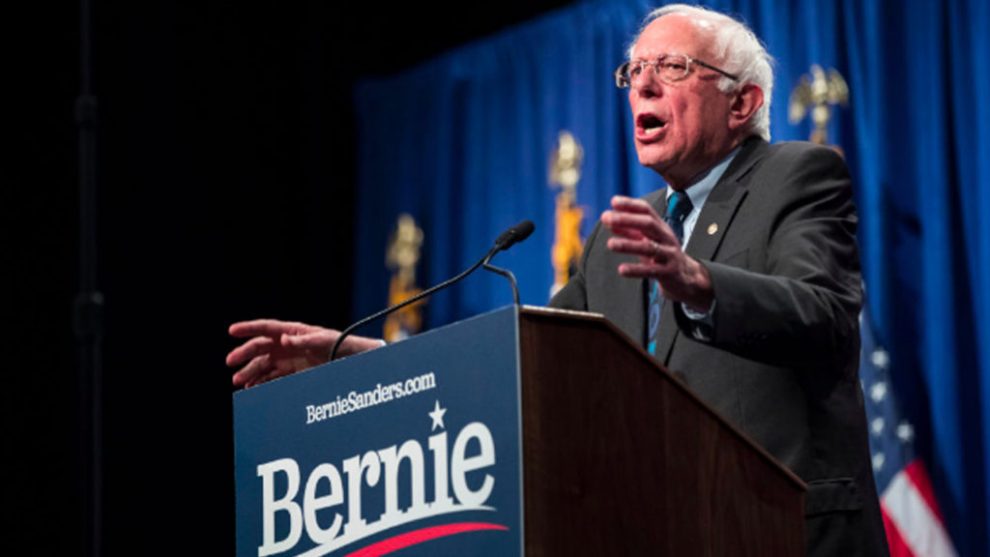This morning, Democratic presidential candidate and Vermont Sen. Bernie Sanders (I) tweeted out his support for efforts to unionize the video game industry. He did so in a fashion truly appropriate for the man—one that made it clear that he doesn’t always grasp basic economics:
The video game industry made $43 billion in revenue last year. The workers responsible for that profit deserve to collectively bargain as part of a union. I'm glad to see unions like @IATSE and the broader @GameWorkers movement organizing such workers. https://t.co/Ia5gMG2v0w
— Bernie Sanders (@BernieSanders) June 18, 2019
California allocating $35M to support illegal immigrants amid Trump’s mass deportation agenda
Biden friends voice concern over increased fatigue amid cancer battle: report
Manhunt underway after Missouri deputy slain, suspect’s truck spotted heading toward Arkansas border
House Dem compares Trump’s illegal immigration crackdown to ‘terrorism,’ vows to abolish ICE
Abbott surges Texas troopers to border after cartel kingpin’s killing sparks violence in Mexico
Notorious Mexican Drug Lord Was Killed After Secret Rendezvous with Lover Went Awry
California Gov. Gavin Newsom Accused of Racism After Making SAT Score Comment to Black Mayor
Mamdani’s NYC: Mayor Says Deaths During ‘Historic’ Blizzard Were ‘Overdose Related’ and Not Due to Weather Conditions
Social media erupts after Stephen King makes false claim about Trump’s family: ‘What is this sh–?’
Jack Smith’s Report from President Trump’s Classified Docs Case Permanently Blocked by Judge Aileen Cannon
Republicans make new House push on cartels after death of Mexico kingpin
Trump’s ‘worldwide tariff’ sets stage for rebuke from Congress ahead of midterm elections
Trump Predicts Supreme Court ‘Will Find a Way to Come to the Wrong Conclusion’ on Birthright Citizenship
ICE arrests convicted pedophiles, violent assailants as Trump meets with Angel Families
Ex-Navy SEAL puts ‘deranged’ Mexican drug cartel on notice after violent weekend: ‘More like ISIS’
In the tweet, Sanders confuses “revenue” with “profit.” This is not an insignificant mistake, but it’s one that is common in reporting about large American corporations. All too often, reporters talk about how much money a company takes in without offering any analysis of that company’s expenses. Amazon, for example, despite massive revenues has only recently begun making an actual profit. In the Time story that Sanders links to, writer Alana Semuels similarly fails to differentiate between revenue and profit when covering the efforts to organize.
It’s true that the game industry did bring in $42 billion in revenue last year from customers in the United States (and nearly $140 billion worldwide). But revenue is the money a company brings in before deducting its expenses, like, for example, workers’ wages. So, in reality, video game industry workers did get a cut of those billions. It’s only after such workers are paid (and other expenses are deducted) that we can talk about profit.
Sanders, of course, has a long history of failing to grasp the basics of market economics. He frequently sees marketplace choices as a threat, even as they open avenues and opportunities for our poorest citizens or provide all of us with ever improving mass entertainment.
Story cited here.
























